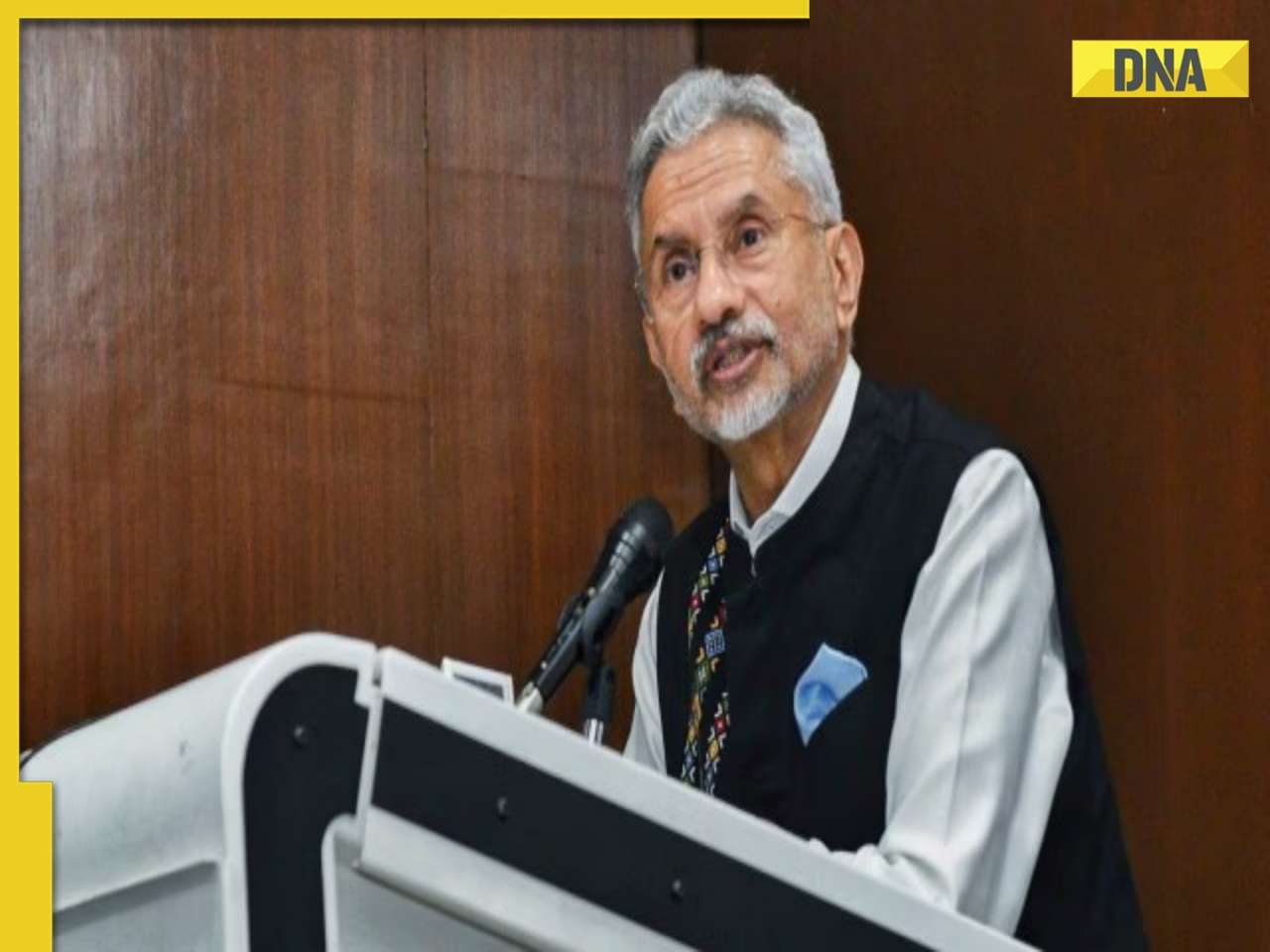Pakistan is unwilling to arrest Sajid Mir, who is wanted in four continents, because the LeT terrorist is 'well connected' and 'too powerful', US counter-terrorism officials have said.
Pakistan is unwilling to arrest the elusive mastermind of the Mumbai terror attack suspect, Sajid Mir, who is wanted in four continents, because the LeT terrorist is 'well connected' and 'too powerful', US counter-terrorism officials have said.
While attention has been focused on Pakistani-American terror convict David Headley, the real mastermind of the 26/11 attacks was Mir, according to the new investigative report.
"We can only push so far. It's very political. Sajid Mir is too powerful for them to go after. Too well-connected. We need the Pakistanis to go after the Taliban and al-Qaeda," a high-ranking US law enforcement official was quoted as saying by ProPublica in its latest investigative report which was also published in The Washington Post.
"It was Sajid Mir, another Pakistani, who allegedly led Pakistan based Lashkar-e-Taiba's bloody siege on Mumbai in November 2008," the Washington Post said.
Before the attack, Mir had spent two years using Headley to conduct meticulous reconnaissance on Mumbai, according to investigators and court documents.
"On November 26, 2008, Mir sat among militant chiefs in a Pakistani safe house tracking an attack team as its dinghy approached the Mumbai waterfront," the investigative report said.
"The Lashkar-i-Taiba terrorist group had made Mir the project manager of its biggest strike ever, the crowning achievement of his career as a holy warrior."
Despite best of their efforts, the report said, US officials acknowledge that the response has been insufficient.
"The effort to bring to justice the masterminds — under a US law that makes terrorist attacks against Americans overseas a crime — faces obstacles.
A US prosecution could implicate Pakistani military chiefs who, at minimum, have allowed Lashkar to operate freely. US pressure on Pakistan to confront both the military and Lashkar could damage counter-terrorism efforts," it said.
The charges are however denied by the ISI, who alleges that these are based on "malicious intent". But counter-terrorism officials across the continents take ISI's claims this with a pinch of salt.
"Lashkar is not just a tool of the ISI, but an ally of al-Qaeda that participates in its global jihad," said Jean-Louis Bruguiere, a French judge who investigated Mir. "Today Pakistan is the heart of the terrorist threat. And it may be too late to do anything about it," he was quoted as saying in the investigative report published on the front page of The Washington Post as Sunday’s lead story.
Mir, according to the investigative report, joined Lashkar when he was a teen. Mir became a deputy to the director of Lashkar's foreign operations unit.
He had direct access to Zaki-ur-Rehman Lakhvi, Lashkar's military chief, and ties to al-Qaeda in neighboring Afghanistan, according to a French investigation. After the September 11 attacks, Mir began grooming foreign volunteers who had come to Pakistan to wage war on the West.
Mir is also believed to have recruited American nationals including four militants from the Virginia suburbs. They were part of a multi ethnic crew of college graduates, US Army veterans and gun enthusiasts whose spiritual leader was Ali Al-Timimi, an Iraqi-American imam based in Falls Church.
In fact, many in Pakistan treated Mir as someone in the Pakistani military. During Mir's visits to check on training progress, everyone from the camp chief to army sentries treated him like a superior, Willie Brigitte the Afro-Caribbean terrorist who received training under Mir.
"It was clear to him that Mir was a military officer, he said," the report said.
Headley, was one of Mir's favourite. Mir decided to cultivate this man of two worlds as a clandestine operative, according to documents and officials.
Mir and his victims are at the centre of a wrenching national security dilemma confronting the Obama administration, the report said.
"The question, simply put, is whether the larger interests of the United States in maintaining good relations with Pakistan will permit Mir and other suspects to get away with one of the most devastating terrorist attacks in recent history," it asked.
ProPublica said for five months, it has examined the investigation of the attacks and previous cases documenting the rise of Lashkar and conducted interviews with more than two dozen law enforcement, intelligence and diplomatic officials from the US, India, Pakistan, France, Britain, Australia and Israel.
ProPublica's investigation leads to another disturbing revelation: Despite isolated voices of concern, for years the US intelligence community was slow to focus on Lashkar and detect the extent of its determination to strike Western targets.
Some officials admit that counter terrorism agencies grasped the dimensions of the threat only after the Mumbai attacks.
The FBI investigation into the killings of the Americans has focused on a half-dozen accused masterminds who are still at large: Mir, top Lashkar chiefs and a man thought to be a major in Pakistan’s Inter-Services Intelligence Directorate (ISI).
US officials say Washington has urged Islamabad to arrest the suspects, but according Pakistani officials are reluctant to arrest them, the investigative report said.
![submenu-img]() 'They unilaterally took some measures': EAM Jaishankar on new Nepal 100 rupee currency
'They unilaterally took some measures': EAM Jaishankar on new Nepal 100 rupee currency![submenu-img]() Meet Ice Cream Lady of India, who built Rs 6000 crore company, started with small investment of Rs…
Meet Ice Cream Lady of India, who built Rs 6000 crore company, started with small investment of Rs…![submenu-img]() ‘Canada a rule-of-law country’: PM Trudeau after 3 Indian arrested over Hardeep Nijjar's murder
‘Canada a rule-of-law country’: PM Trudeau after 3 Indian arrested over Hardeep Nijjar's murder![submenu-img]() Viral video: Specially-abled girl’s energetic dance to Bollywood song wows internet, watch
Viral video: Specially-abled girl’s energetic dance to Bollywood song wows internet, watch![submenu-img]() 'Baap re baap': Imtiaz Ali reveals Diljit Dosanjh was scandalised by old women's 'vulgar' improvisation on Chamkila set
'Baap re baap': Imtiaz Ali reveals Diljit Dosanjh was scandalised by old women's 'vulgar' improvisation on Chamkila set![submenu-img]() DNA Verified: Is CAA an anti-Muslim law? Centre terms news report as 'misleading'
DNA Verified: Is CAA an anti-Muslim law? Centre terms news report as 'misleading'![submenu-img]() DNA Verified: Lok Sabha Elections 2024 to be held on April 19? Know truth behind viral message
DNA Verified: Lok Sabha Elections 2024 to be held on April 19? Know truth behind viral message![submenu-img]() DNA Verified: Modi govt giving students free laptops under 'One Student One Laptop' scheme? Know truth here
DNA Verified: Modi govt giving students free laptops under 'One Student One Laptop' scheme? Know truth here![submenu-img]() DNA Verified: Shah Rukh Khan denies reports of his role in release of India's naval officers from Qatar
DNA Verified: Shah Rukh Khan denies reports of his role in release of India's naval officers from Qatar![submenu-img]() DNA Verified: Is govt providing Rs 1.6 lakh benefit to girls under PM Ladli Laxmi Yojana? Know truth
DNA Verified: Is govt providing Rs 1.6 lakh benefit to girls under PM Ladli Laxmi Yojana? Know truth![submenu-img]() Streaming This Week: Heeramandi, Shaitaan, Manjummel Boys, latest OTT releases to binge-watch
Streaming This Week: Heeramandi, Shaitaan, Manjummel Boys, latest OTT releases to binge-watch![submenu-img]() Remember Ayesha Kapur? Michelle from Black, here's how actress, nutrition coach, entrepreneur looks after 19 years
Remember Ayesha Kapur? Michelle from Black, here's how actress, nutrition coach, entrepreneur looks after 19 years![submenu-img]() Remember Heyy Babyy's cute 'Angel' Juanna Sanghvi? 20 year-old looks unrecognisable now, fans say 'her comeback will...'
Remember Heyy Babyy's cute 'Angel' Juanna Sanghvi? 20 year-old looks unrecognisable now, fans say 'her comeback will...'![submenu-img]() In pics: Arti Singh stuns in red lehenga as she ties the knot with beau Dipak Chauhan in dreamy wedding
In pics: Arti Singh stuns in red lehenga as she ties the knot with beau Dipak Chauhan in dreamy wedding![submenu-img]() Actors who died due to cosmetic surgeries
Actors who died due to cosmetic surgeries![submenu-img]() DNA Explainer: Why Harvey Weinstein's rape conviction was overturned, will beleaguered Hollywood mogul get out of jail?
DNA Explainer: Why Harvey Weinstein's rape conviction was overturned, will beleaguered Hollywood mogul get out of jail?![submenu-img]() What is inheritance tax?
What is inheritance tax?![submenu-img]() DNA Explainer: What is cloud seeding which is blamed for wreaking havoc in Dubai?
DNA Explainer: What is cloud seeding which is blamed for wreaking havoc in Dubai?![submenu-img]() DNA Explainer: What is Israel's Arrow-3 defence system used to intercept Iran's missile attack?
DNA Explainer: What is Israel's Arrow-3 defence system used to intercept Iran's missile attack?![submenu-img]() DNA Explainer: How Iranian projectiles failed to breach iron-clad Israeli air defence
DNA Explainer: How Iranian projectiles failed to breach iron-clad Israeli air defence![submenu-img]() 'Baap re baap': Imtiaz Ali reveals Diljit Dosanjh was scandalised by old women's 'vulgar' improvisation on Chamkila set
'Baap re baap': Imtiaz Ali reveals Diljit Dosanjh was scandalised by old women's 'vulgar' improvisation on Chamkila set![submenu-img]() This actor, who worked with Karan Johar and Farhan Akhtar, gave superhit shows, saw failed marriage, killed himself at..
This actor, who worked with Karan Johar and Farhan Akhtar, gave superhit shows, saw failed marriage, killed himself at..![submenu-img]() Did you know Ranveer Singh's grandmother was popular actress? Worked with Raj Kapoor; her career affected due to...
Did you know Ranveer Singh's grandmother was popular actress? Worked with Raj Kapoor; her career affected due to...![submenu-img]() India's highest-paid TV actress began working at 8, her Bollywood films flopped, was seen in Bigg Boss 1, now charges...
India's highest-paid TV actress began working at 8, her Bollywood films flopped, was seen in Bigg Boss 1, now charges...![submenu-img]() Shreyas Talpade wonders if his heart attack was due to Covid vaccine: 'We don’t know what we have taken inside...'
Shreyas Talpade wonders if his heart attack was due to Covid vaccine: 'We don’t know what we have taken inside...'![submenu-img]() IPL 2024: Faf du Plessis, Virat Kohli help Royal Challengers Bengaluru defeat Gujarat Titans by 4 wickets
IPL 2024: Faf du Plessis, Virat Kohli help Royal Challengers Bengaluru defeat Gujarat Titans by 4 wickets![submenu-img]() IPL 2024: Why is Sai Kishore not playing today's RCB vs GT match?
IPL 2024: Why is Sai Kishore not playing today's RCB vs GT match?![submenu-img]() 'Mumbai Indians ki kahani khatam': Ex-India star slams Hardik Pandya after MI's loss to KKR at Wankhede
'Mumbai Indians ki kahani khatam': Ex-India star slams Hardik Pandya after MI's loss to KKR at Wankhede![submenu-img]() LSG vs KKR, IPL 2024: Predicted playing XI, live streaming details, weather and pitch report
LSG vs KKR, IPL 2024: Predicted playing XI, live streaming details, weather and pitch report![submenu-img]() LSG vs KKR IPL 2024 Dream11 prediction: Fantasy cricket tips for Lucknow Super Giants vs Kolkata Knight Riders
LSG vs KKR IPL 2024 Dream11 prediction: Fantasy cricket tips for Lucknow Super Giants vs Kolkata Knight Riders![submenu-img]() Viral video: Specially-abled girl’s energetic dance to Bollywood song wows internet, watch
Viral video: Specially-abled girl’s energetic dance to Bollywood song wows internet, watch![submenu-img]() Viral video: Man educates younger brother about mensuration, internet is highly impressed
Viral video: Man educates younger brother about mensuration, internet is highly impressed![submenu-img]() Girl's wedding dance to Haryanvi song interrupted by mother in viral video, internet reacts
Girl's wedding dance to Haryanvi song interrupted by mother in viral video, internet reacts![submenu-img]() Viral video: Man fearlessly grabs dozens of snakes, internet is scared
Viral video: Man fearlessly grabs dozens of snakes, internet is scared![submenu-img]() This mysterious mobile phone number was suspended after three users...
This mysterious mobile phone number was suspended after three users...

















































)
)
)
)
)
)